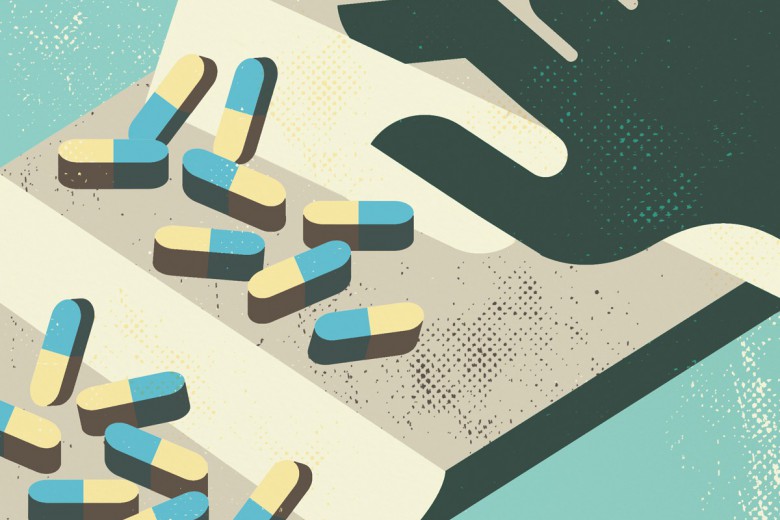My neighbour's fire alarm went off before mine. I slept like a corpse as the alarms blared and flames roared through the windows of my apartment. I think I woke up briefly to firefighters trying to get into my apartment, but the memory is hazy.
Following doctor’s orders, I had obediently swallowed Seroquel (quetiapine) that night, a so-called “antipsychotic” medication used to treat mental illnesses like schizophrenia, bipolar disorder, and, off-label, dementia, autism, eating disorders, insomnia, and post-traumatic stress disorder.
My first experience with Seroquel was in 2009 during my first night in a psychiatric institution. Cold hands gripped me, and a needle penetrated the weak flesh of my arm. My room filled with a dense fog. Unable to see through it, I slept for two days straight. I woke up only when I felt a pill jammed down my parched throat, plunging me into hours of night terrors.
That was the beginning of 13 years where being awake felt like I was asleep, the days and nights blurring into one another.
After the drug had me nearly engulfed in flames, I knew it was time for change. Guidelines encourage use for only a few months, not 13 years, and the Canadian Medication Appropriateness and Deprescribing Network advises an immediate deprescribing plan for patients like me who were prescribed Seroquel solely for insomnia due to the drug’s “risk of harm.”
I tried to quit Seroquel four times, but each time my withdrawal plunged me deeper into depression and suicidal ideation, and deeper into psychiatry’s cycle of diagnoses, prescriptions, and institutionalization where more Seroquel was the solution. Desperate for help, I asked my doctor to supervise my withdrawal. “Do you want to up your dose?” he responded coyly. He assured me that my fears about the drug were unfounded and I was being paranoid.
Prisoner advocates and family members of institutionalized people depict the overprescribing epidemic as attempts to “control behaviour” turning people into “zombies.”
I’m far from the only person to be put on Seroquel while in an institution. Disabled people confined in institutions are disproportionately prescribed antipsychotics like Seroquel: 56 per cent of adults labelled with intellectual disabilities in group homes compared to 39 per cent of labelled adults in the larger community, seniors in long-term care facilities in 2021 at a rate eight times higher than those in the broader community, and 63 per cent of women incarcerated in federal penitentiaries compared to the 10 to 20 per cent in the general population.
Prisoner advocates and family members of institutionalized people depict the overprescribing epidemic as attempts to “control behaviour” turning people into “zombies.” The current pharmacare system isn’t set up to care for patients but to pathologize, medicate, and institutionalize while private companies profit from our disability and Madness.
In February 2024, Justin Trudeau announced that his government would provide universal access to diabetes drugs and devices and contraceptives and alluded to expanding coverage to include more drugs in the future. As I listened to his announcement, I thought about how the future of this program would affect disabled and Mad institutionalized people and what they might be put on next, and how as people work longer hours and more taxing jobs, their prescriptions go up and their disability and Madness become more profitable to private health-care companies.
I take my four-times-daily medications, plus as needed. I don’t want my body to be more profitable, I don’t want Cheplapharm (the owner of Seroquel) and its subsidiaries and institutions that administer the drug profiting from my wounds. I don’t want Eli Lilly, the patent holder for major diabetes medications such as Humulin and Humalog, to profit from a disease exacerbated by poverty and food insecurity.
I want the diabetes drugs and contraceptives to be free and accessible to all. But while the new plan will make a difference in many people’s lives, it keeps pharmaceutical profits flowing and institutions feeding drugs at record highs to disabled people.
The starved health care system has abandoned all of us – sick and healthy, wounded, bleeding, held together with for-profit additives.
Plus, based on the 2024 budget, the Liberals are planning on allocating $1.9 billion over five years, despite a comprehensive plan requiring an allotment of an initial $3.5 billion and growing to $15.3 billion. If the government was serious about cutting pharmaceutical profits and lowering prices for patients, it would need to massively increase spending and resources.
Nationalizing pharmacare would greatly benefit Canadians, but only if it prioritizes people over pharmaceutical companies’ profits and it’s rolled out in tandem with comprehensive health care so the system no longer just medicates people’s symptoms but treats their sources. That health care gives people agency over their health and well-being rather than a means to generate more profits.
The starved health care system has abandoned all of us – sick and healthy, wounded, bleeding, held together with for-profit additives. Without comprehensive health care, disabled people are hacking the system to take care of each other and paving the way for a more just pharma system by trading drugs, testing and supervising drug use, developing safety plans, taking out Paxlovid for COVID-19 patients who don’t meet the requirements, and checking in with one another regularly.
The health care system never helped me get off Seroquel – my disabled peers did. Drawing from Leah Lakshmi Piepzna-Samarasinha’s and Carly Boyce’s ideas for suicide prevention for Crips, I created a care circle to support my withdrawal. My circle checked in on me daily. Friends stayed up with me all night. Six months later, I was finally off Seroquel.
We need a radical new vision for health care that goes beyond the hospital and pharmacies to include accessible and affordable housing, the abolition of prisons, psychiatric institutions, and all carceral enclosures, and dignified disability wages. This health care system includes access to the entire gamut of care, like full-spectrum doulas, attendant care, therapists, Traditional Chinese Medicine, death care, and much more, so that pharmacare is a side course rather than the only option.







